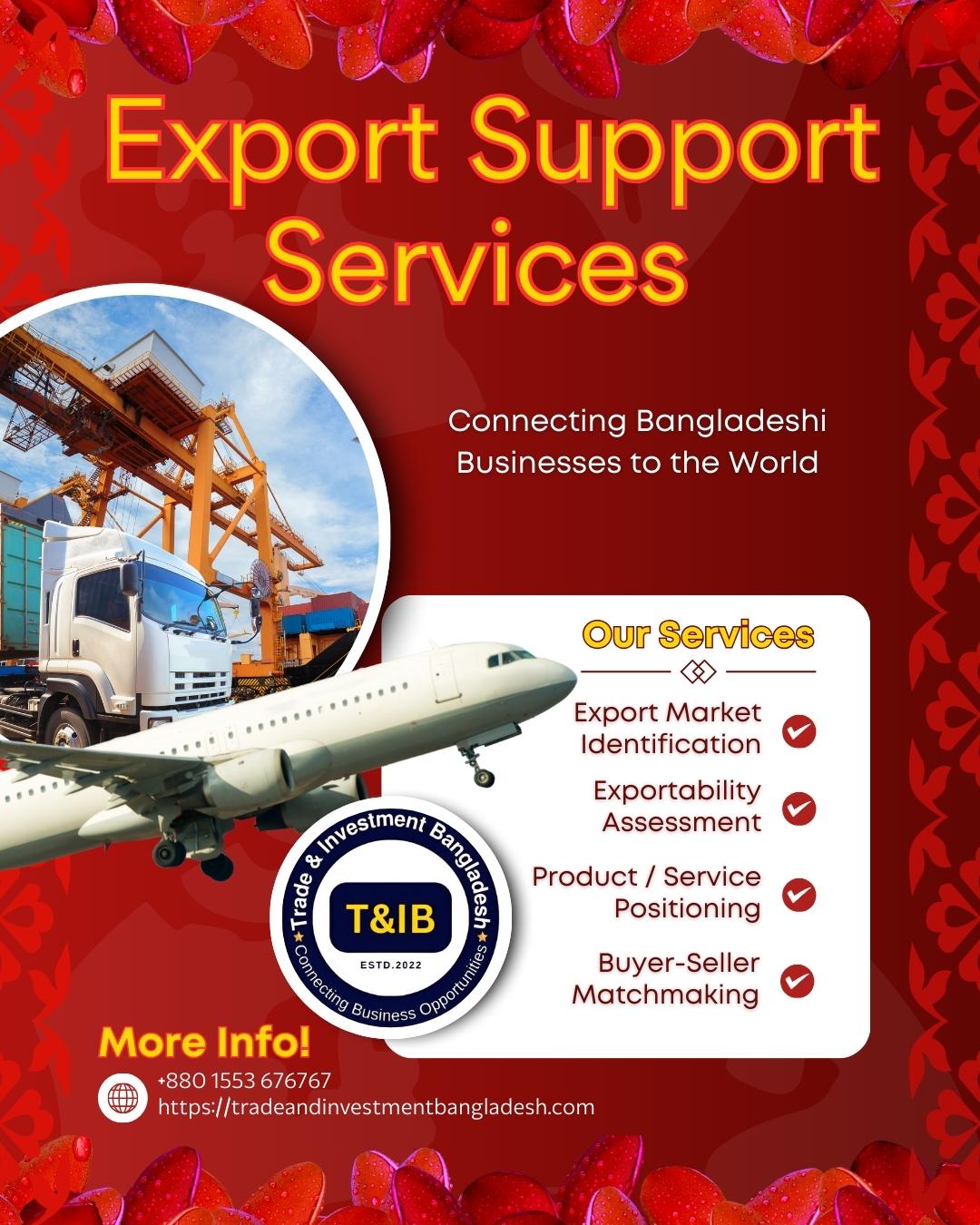Supports a Small Business Needs to Grow Faster
Founder & CEO, Trade & Investment Bangladesh (T&IB)
Executive Director, Online Training Academy (OTA)
Secretary General, Brazil Bangladesh Chamber of Commerce & Industry (BBCCI)
Small and medium enterprises (SMEs) are the lifeblood of any economy. According to the World Bank, SMEs account for over 90% of businesses and more than 50% of employment worldwide. In developing economies, their role is even more pronounced, often contributing up to 40% of national income (GDP). Yet, despite their crucial role in driving innovation, employment, and income generation, small businesses frequently struggle to scale due to various structural and resource-related challenges.
The journey from startup to sustainable growth is often hindered by limited access to finance, lack of skilled labor, inadequate market exposure, outdated technology, and regulatory complexities. For instance, in many countries, over 70% of SMEs cite lack of access to capital as their primary growth barrier. Similarly, digital adoption remains low among small businesses, especially in low- and middle-income regions, creating a digital divide that stifles competitiveness in today’s fast-evolving market landscape.
To overcome these barriers and accelerate growth, small businesses require a well-rounded support ecosystem that includes financial assistance, mentoring, technology access, workforce development, and regulatory guidance. This article explores the seven most essential supports a small business need to not only survive but thrive in a competitive environment focusing on practical tools, real-world solutions, and examples of what works.
2. The Growth Challenges Faced by Small Businesses
Small and medium enterprises (SMEs) are the backbone of Bangladesh’s economy, contributing approximately 25% to the national GDP and employing around 7.8 million people, according to the Bangladesh Bureau of Statistics. Despite their vital role, most small businesses struggle to move beyond survival and scale sustainably. Their growth is often hampered by systemic and structural barriers that go beyond individual effort or innovation. Challenges such as limited access to finance, shortage of skilled labor, lagging digital adoption, and bureaucratic red tape collectively hinder their potential. Addressing these constraints is crucial not only for individual businesses but also for driving inclusive economic growth and reducing unemployment in the country.
2.1 Limited Funding
Access to finance remains a critical obstacle for small businesses in Bangladesh. Although there are SME-focused loan schemes under Bangladesh Bank and commercial banks, most small entrepreneurs especially women and rural business owners find it difficult to meet the requirements. A survey by the International Finance Corporation (IFC) found that around 60% of SMEs are financially underserved. The need for collateral, complex documentation, and lack of awareness about available financing options make formal credit inaccessible to many. As a result, entrepreneurs are forced to rely on personal savings or high-interest informal loans, which limits their ability to expand operations, adopt new technologies, or enter new markets.
2.2 Lack of Skilled Labor
Bangladesh faces a significant mismatch between the skills available in the labor market and the needs of modern businesses. While the country has a large young workforce, most of them lack technical training or vocational education. According to the National Skills Development Authority (NSDA), only 13% of the workforce receives any formal skills training, leaving a vast majority underprepared for roles that require digital, mechanical, or managerial expertise. Small businesses, often operating on thin margins, cannot afford to provide in-depth training and thus struggle to maintain a competent workforce. This ultimately affects product quality, service delivery, and overall business efficiency.
2.3 Inadequate Marketing or Tech Adoption
In today’s competitive landscape, businesses that fail to adopt digital marketing tools and technology are at a serious disadvantage. Yet, in Bangladesh, the majority of small businesses are still heavily reliant on word-of-mouth, local bazaars, and manual bookkeeping. A 2022 study by LightCastle Partners revealed that only 28% of SMEs use any form of digital tools, and fewer than 10% have an online sales channel. This digital divide prevents them from reaching broader markets, improving operational efficiency, or competing with tech-enabled businesses. The reasons include low digital literacy, cost of devices and internet, and a lack of training opportunities in digital tools.
2.4 Regulatory Complexity
Navigating regulatory requirements remains a cumbersome process for small businesses in Bangladesh. From business registration and licensing to tax compliance and import/export regulations, the procedures are often time-consuming, inconsistent, and opaque. The World Bank’s Doing Business 2020 report placed Bangladesh at 168 out of 190 countries, reflecting significant challenges in starting and operating a business legally. Entrepreneurs often encounter delays, unofficial fees, and confusion due to overlapping jurisdictions. This pushes many businesses to remain informal, which limits their access to formal finance, legal protection, and government support programs essential for growth.

3. Seven Essential Supports for Fast Growth
For small businesses in Bangladesh to transition from survival mode to sustainable growth, they need more than just entrepreneurial passion. A supportive ecosystem that addresses their core challenges is essential to unlocking their full potential. While many SMEs struggle due to a lack of capital, skills, technology, or market reach, these barriers can be overcome with targeted supports designed for their unique needs. Countries that have prioritized small business development through finance access, mentorship, training, and policy reforms have seen significant contributions to GDP and employment. For Bangladesh, where SMEs account for about 25% of GDP and over 40% of employment, investing in these seven growth drivers is not just beneficial—it’s imperative for national economic progress.
3.1 Access to Finance
Access to finance is the lifeline of small business growth. In Bangladesh, despite the existence of SME loan schemes by institutions like Bangladesh Bank and SME Foundation, a large financing gap persists. According to the IFC, only 27% of SMEs in Bangladesh have access to formal credit, leaving the majority dependent on high-interest informal loans or personal savings. Available funding options include microfinance, bank loans, venture capital, and government credit guarantee schemes. For example, the Bangladesh Bank’s Refinance Scheme for SMEs offers loans at reduced interest rates, but awareness and accessibility remain issues. Expanding inclusive financial services and reducing procedural barriers can directly boost SME growth.
3.2 Mentorship & Business Advisory
Expert guidance can be transformative for small business owners navigating complex markets. Mentorship helps entrepreneurs refine their business models, improve decision-making, and avoid costly mistakes. In Bangladesh, structured mentorship is still limited, but initiatives like Startup Bangladesh, LightCastle Partners’ SmartCap, and various university incubators are providing advisory services to emerging businesses. Experienced mentors from the business community, accelerators, and industry-specific networks can offer hands-on advice in areas like pricing, operations, and scaling strategies. For instance, entrepreneurs supported by LightCastle’s “SmartCap” accelerator reported 30–40% revenue growth within one year of mentorship and capacity building.
3.3 Marketing & Branding Assistance
In a saturated market, visibility and strong branding are key to standing out and building customer trust. Yet, most small businesses in Bangladesh rely on informal word-of-mouth marketing due to lack of skills or resources. Digital tools like Facebook, Google Ads, and SEO can dramatically increase visibility, but uptake is still low. A LightCastle study shows that only 15% of SMEs actively use digital marketing strategies, limiting their reach. Government and private initiatives that train businesses in social media marketing, content creation, and branding such as those offered by BASIS or a2i’s “ekShop” can empower SMEs to engage new markets and scale faster.
3.4 Technology & Digital Tools
Adopting the right technology can streamline operations, improve productivity, and enable growth. Yet, tech adoption among Bangladeshi SMEs remains limited due to cost, digital illiteracy, and lack of awareness. A 2021 study by a2i found that over 60% of rural SMEs lack basic digital tools such as accounting software or POS systems. Affordable or even free solutions—like Google Workspace, Zoho, or local platforms like ShopUp can help businesses automate inventory, manage customer data, and track sales. When properly introduced and supported, digital tools can be the catalyst that turns a small shop into a scalable enterprise.
3.5 Skilled Workforce & Capacity Building
An untrained workforce limits a business’s ability to innovate or maintain quality. In Bangladesh, where only 13% of the labor force receives formal skills training, SMEs struggle to find employees with relevant experience in sales, IT, or customer service. The government’s Skills for Employment Investment Program (SEIP) and TVET initiatives aim to bridge this gap, but alignment with market needs remains weak. Upskilling workers through vocational training, soft skill development, and on-the-job learning can improve business efficiency and customer satisfaction. Collaborations with NGOs or training centers can help SMEs access a pipeline of semi-skilled or skilled labor tailored to their sector.
3.6 Legal & Regulatory Support
Understanding and complying with legal obligations is often overwhelming for small entrepreneurs. Many avoid formal registration due to complex procedures, fear of taxation, or lack of legal knowledge. As a result, a large share of SMEs in Bangladesh operates informally—limiting their ability to access finance or government support. The Business Identification Number (BIN) system, digital tax filing platforms, and one-stop service centers like Bangladesh Investment Development Authority (BIDA) can simplify legal compliance. Additionally, free or low-cost legal advisory services, often provided by SME Foundation or development partners, can help businesses navigate licensing, contracts, and tax issues confidently.
3.7 Market Access & Networking Opportunities
Connecting with markets both local and global is vital for expansion. Many SMEs in Bangladesh, particularly outside major cities, lack access to wholesale buyers, export channels, or trade networks. Participation in trade fairs, B2B matchmaking events, and e-commerce platforms like ekShop, Daraz, or Bohubrihi can open up new market opportunities. Additionally, chambers of commerce and industry associations such as FBCCI, BASIS, or BWCCI offer valuable networking and exposure. Programs that link small producers to large value chains like BRAC’s Value Chain Development program have proven successful in increasing rural SME incomes by up to 60%.

4. Role of Government and Private Sector
The growth of small businesses in Bangladesh depends heavily on the combined efforts of both the government and the private sector. The government must play a catalytic role by creating an enabling environment for entrepreneurship. First, it should simplify business registration and licensing procedures through fully digitized, one-stop service platforms to reduce time and corruption. Second, expand targeted financial schemes, especially collateral-free loans for women and rural entrepreneurs, and ensure that banks actively disburse SME loans. Third, regulatory frameworks must be revised to be SME-friendly, including tax incentives and easier compliance processes for new or small enterprises. By investing in SME-focused industrial parks and ensuring infrastructure such as electricity, internet, and transport in rural areas, the state can reduce operational barriers for small businesses.
On the other hand, the private sector including large corporations, NGOs, and business associations can accelerate SME growth by fostering inclusive ecosystems. Fourth, the private sector should create SME incubation and mentorship programs that offer hands-on guidance in finance, technology, and market strategy. Successful examples, such as Grameenphone’s GP Accelerator and LightCastle’s SmartCap, show how mentorship and capacity building can lead to measurable growth. Fifth, private companies should integrate SMEs into their supply chains through inclusive procurement practices and provide fair trade opportunities. Additionally, corporate partnerships with training institutions can upskill workers and bridge the talent gap. A collaborative approach where the government builds the infrastructure and policy framework, and the private sector delivers innovation, skills, and markets, is essential for unlocking the full potential of Bangladesh’s small business sector.
5. Final Thoughts
In conclusion, the growth of small businesses in Bangladesh is highly dependent on the combined support of both the government and private sector. As the backbone of the economy, small businesses need a nurturing environment that offers access to finance, mentorship, skilled labor, and market opportunities. The proper alignment of resources, digital tools, and infrastructure will not only allow small businesses to survive but to thrive in an increasingly competitive market. This is why it is essential for all stakeholders’ government bodies, financial institutions, private companies, and development organizations to come together and build a robust support ecosystem for SMEs.
Entrepreneurs, too, must take an active role in seeking out these opportunities. By staying informed about available financial schemes, mentorship programs, and digital tools, small business owners can unlock new opportunities for growth. It’s important to remember that growth doesn’t happen in isolation it requires proactive efforts to tap into available resources, whether through government initiatives, industry networks, or private sector partnerships. Small businesses in Bangladesh have the potential to reach new heights, but they must be willing to embrace the support systems that can drive their success.
If you are an entrepreneur looking for guidance or assistance in scaling your business, don’t hesitate to reach out to the Trade & Investment Bangladesh (T&IB), which offers a wide range of support services. Whether you need help with accessing finance, connecting with markets, or understanding regulatory requirements, T&IB can assist in navigating the complex business landscape. Contact them at +8801553676767 or info@tradeandinvestmentbangladesh.com to learn more about the resources and programs available to help you grow your business faster.


